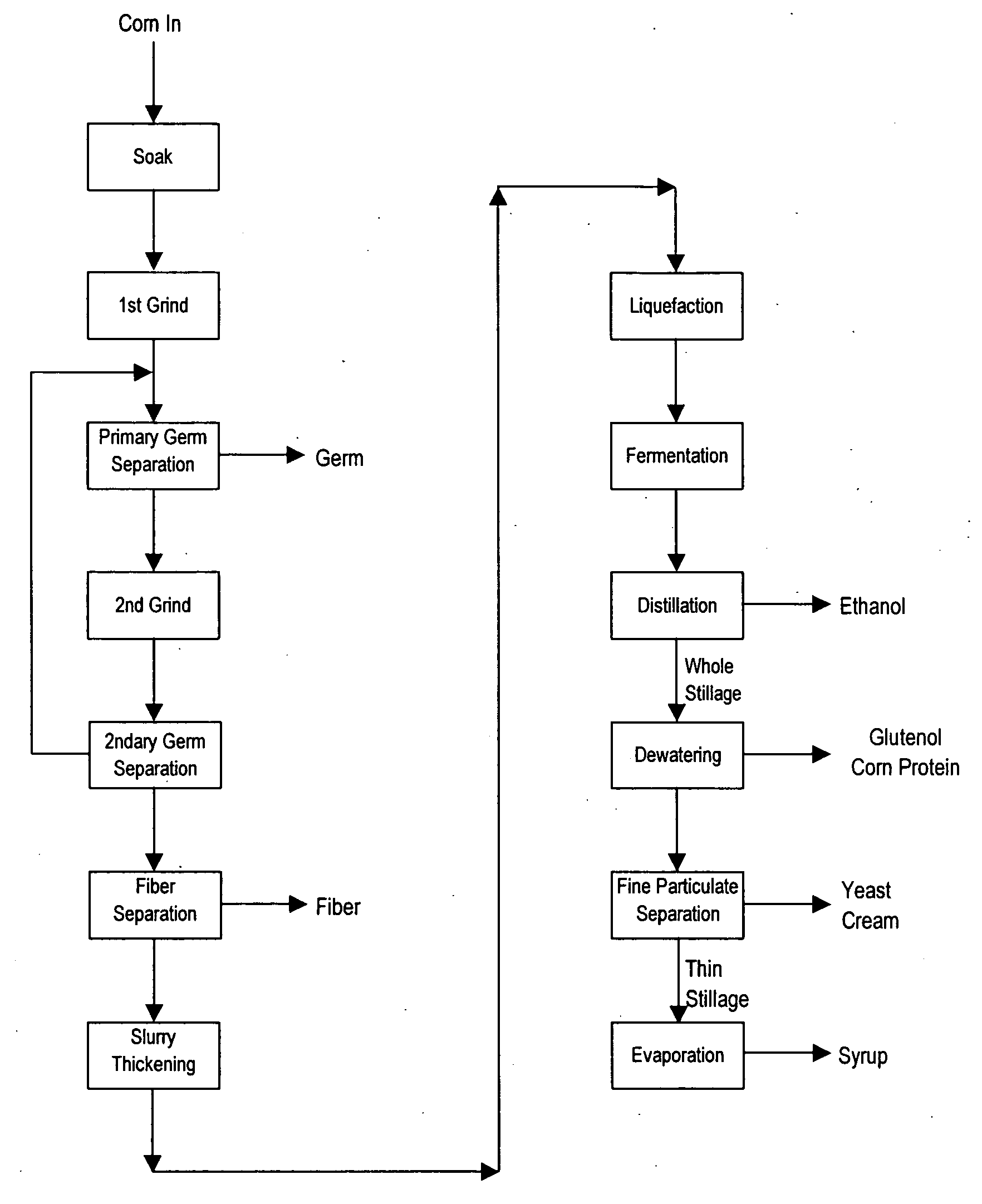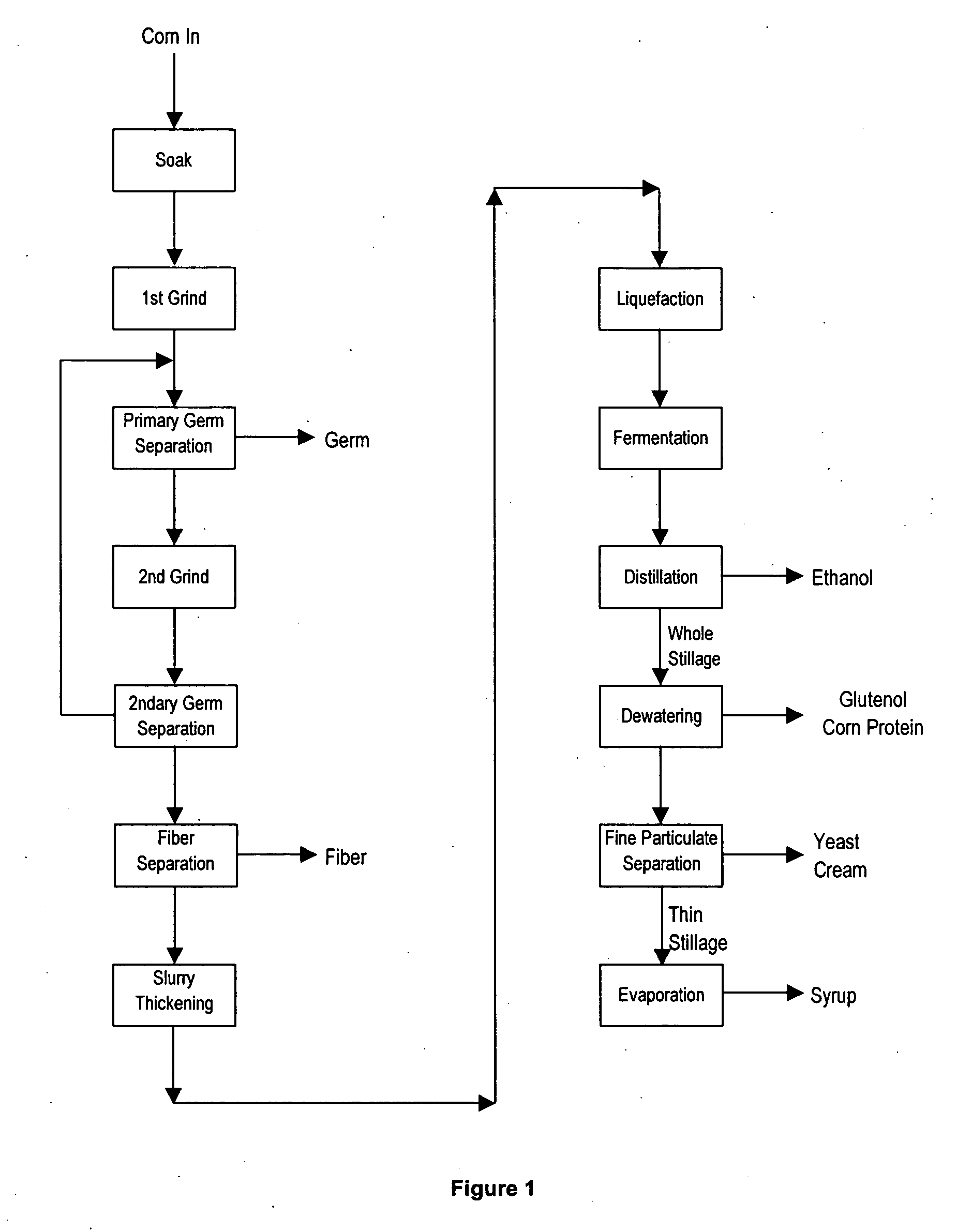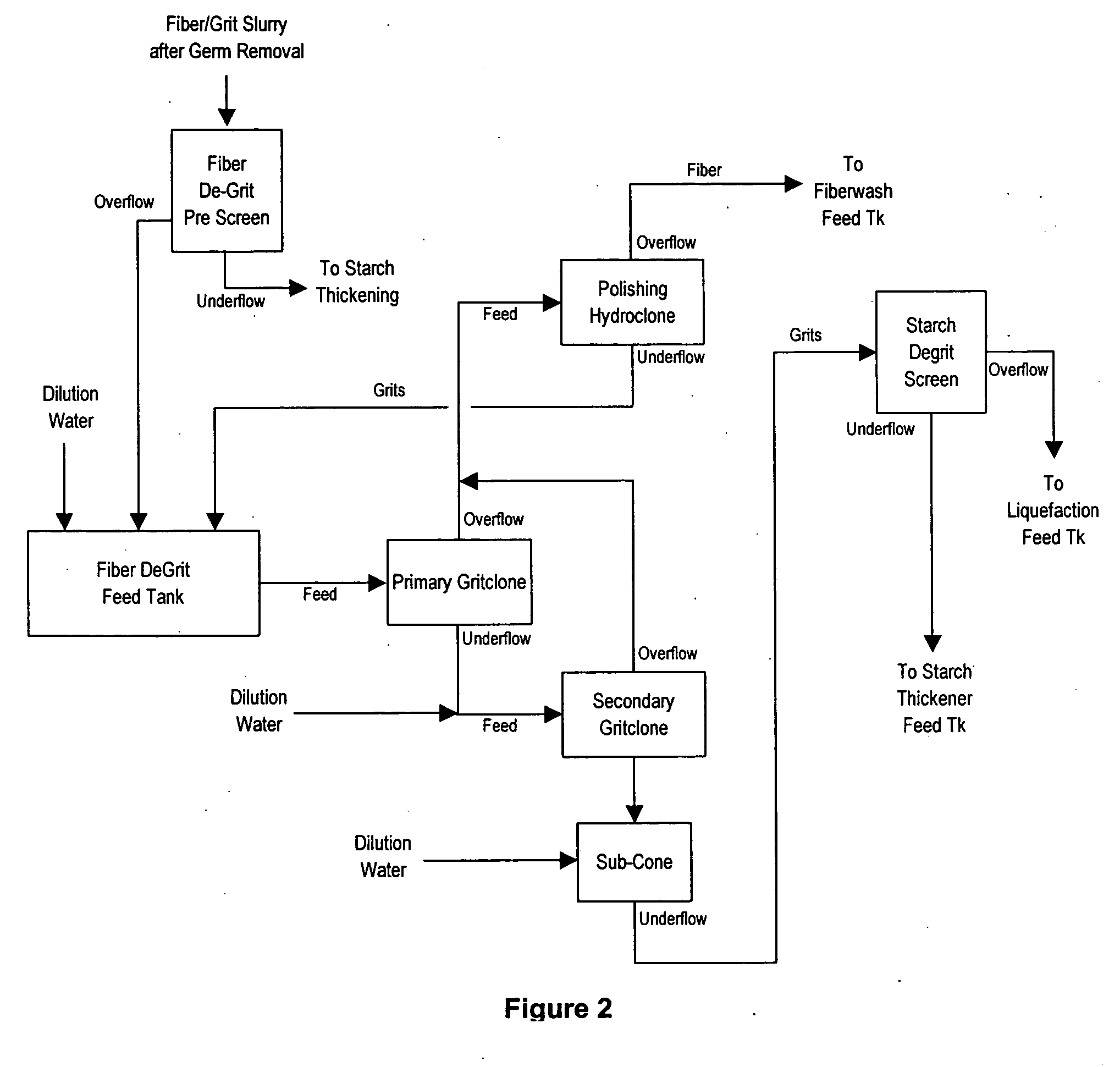Processes for recovery and separation of grain pericarp from endosperm
a technology of endosperm and pericarp, which is applied in the field of recovery and separation of grain pericarp from endosperm, can solve the problems of limiting the economics of ethanol production, high raw material and cost of bringing raw material, and high cost of enzymes, yeast and chemicals used in the process, so as to achieve the effect of improving the density and improving the purity
- Summary
- Abstract
- Description
- Claims
- Application Information
AI Technical Summary
Benefits of technology
Problems solved by technology
Method used
Image
Examples
example
[0030]The following references FIG. 1: Ethanol Process with Separation and Recovery of Grain Components.
Corn Soaking
[0031]The corn is soaked in 155-160° F. water for 6-24 hours. Alpha-amylase enzyme is added to the soak water at a concentration of ranging from 0.0006-0.0172% wt DS corn and preferably 0.0013-0.0046% wt DS corn. The soak water is recirculated and heated to prevent cold pockets in the soak tank. This soaking process hydrates the kernel to about 45% moisture, softens the endosperm around the germ and loosens the pericarp prior to grinding.
Grinding and Germ Separation
[0032]The initial grinding step and germ removal is very similar to the process used in conventional corn wet milling. The 1st grind mill cleaves the kernel to free the germ from the endosperm without damage to the germ. Water is added to the corn to form a slurry. The slurry is adjusted to 7-9 Baumé and more preferably 6.5-7.5 Be suspended solids. This range of the carrying fluid takes advantage of the spec...
PUM
| Property | Measurement | Unit |
|---|---|---|
| temperature | aaaaa | aaaaa |
| pressure | aaaaa | aaaaa |
| temperature | aaaaa | aaaaa |
Abstract
Description
Claims
Application Information
 Login to View More
Login to View More - R&D
- Intellectual Property
- Life Sciences
- Materials
- Tech Scout
- Unparalleled Data Quality
- Higher Quality Content
- 60% Fewer Hallucinations
Browse by: Latest US Patents, China's latest patents, Technical Efficacy Thesaurus, Application Domain, Technology Topic, Popular Technical Reports.
© 2025 PatSnap. All rights reserved.Legal|Privacy policy|Modern Slavery Act Transparency Statement|Sitemap|About US| Contact US: help@patsnap.com



